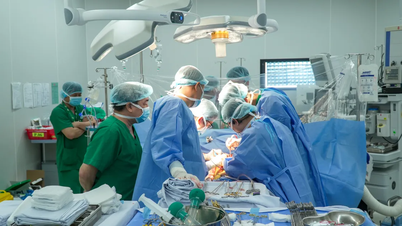Lawmakers voted 388 in favor, 234 against and 31 abstentions.
This result means that the German Parliament has officially passed a new immigration law, moving towards the goal of supplementing the labor shortage.
According to the AP news agency, asylum seekers who have a degree and a job offer as of March 29 can be granted a residence permit. These cases will have to withdraw their asylum applications to eliminate the possibility of them leaving Germany.

Skilled workers will also be allowed to bring their relatives to Germany, provided they can provide financial support for the accompanying family members.
For many years, Germany has struggled to attract skilled workers from outside the European Union (EU). According to experts, Germany needs about 400,000 highly skilled immigrants each year to rebalance its aging population and address labor shortages in key economic sectors.
An analysis found that 200 of the roughly 1,200 occupations surveyed in Germany will face labor shortages by 2022, up from 148 the previous year. Professions such as bus drivers, hotel and restaurant services and metalworkers are among the list.
Other professions that Germany is struggling with due to labor shortages include nursing, childcare, construction, automotive technology, truck drivers, architects, pharmacists and information technology.
Germany's Interior Minister Nancy Faeser said the shortage of skilled workers was one of the biggest obstacles to economic growth in the country, so the new immigration law was a big step forward for the future of the EU's top economy.
Source







































































































Comment (0)